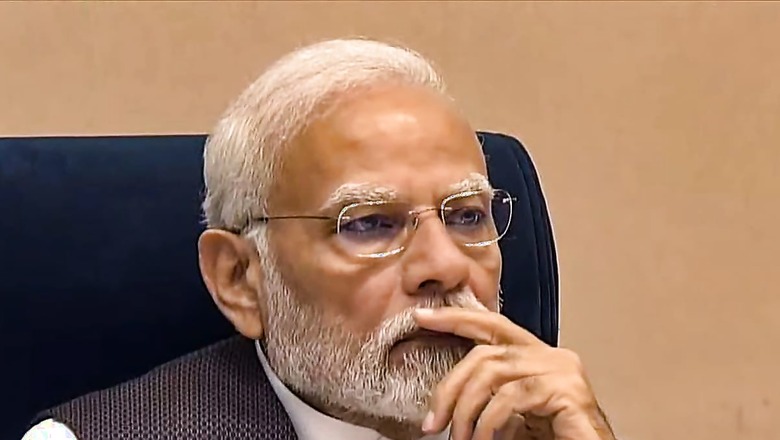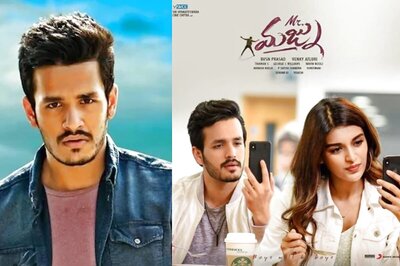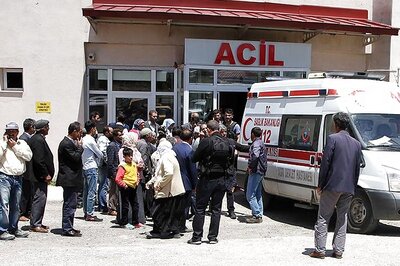
views
Representatives from over 30 countries will attend the Indo-Pacific Armies Chiefs Conference (IPACC) in Delhi which has been co-hosted by the US Army since 1999. The conference’s aim is to focus on security and stability in the Indo-Pacific region, especially considering increasing aggression from China over Taiwan.
The event underscores the increasing importance Delhi in the region. In fact, the change in nomenclature from the earlier ‘Asia-Pacific’ to ‘Indo-Pacific’ reflects how India’s role is being perceived by world powers in the region. India has also seen expediency in shedding its earlier hesitancy in getting involved in an area seen as China’s backyard.
Through diplomacy and military engagement, India been making significant strides in establishing itself as a proactive and collaborative player in Indo-Pacific. While the IPACC is not pitched overtly as a conference to counter China, its stated objective is to “build trust, understanding and cooperation among land forces in the region, and promote a free and open Indo-Pacific”.
But no one can dispute that China’s aggression, BRI expansionism and ‘String of Pearls’ strategy have not forced the formation of such regional groupings. The announcement of an India-Middle East-Europe Economic Corridor (IMEEC) during the G20 summit bolsters the Indo-Pacific strategies of several countries as it can help retune supply chains and rebalance trade with China. IMEEC de-risks supply chains away from the Suez Canal and is an alternative to China’s hegemonic purview of Belt and Road.
Despite existing diplomatic rows, Canada is sending its Vice Chief of Army to be part of the IPACC meeting in Delhi, which shows military relations are paramount for the Indo-Pacific. New Delhi has not allowed the diplomatic spat or the larger Khalistan issue colour its military cooperation with Canada.
India’s Diplomacy Blitz in Indo-Pacific
India’s urge to challenge this Chinese expansionism is best reflected in its choice to become part of the formal Quad grouping alongside the US, Australia and Japan. Officially, even the Quad claims it is not a military grouping and not focussed on China. Early next year, India will be hosting the in-person Quad leaders’ summit which will see Joe Biden, Anthony Albanese, Fumio Kishida and PM Modi deliberate on building a more secure environment in the Indo Pacific.
India’s role in the Quad setup is crucial, as it is the only nation that has in recent memory exchanged physical blows with China. Also, New Delhi is determined to counter China’s String of Pearls strategy that seeks to encircle India.
Under PM Modi, there has been increased outreach towards even the smallest of Indo-Pacific nations. In fact, one of the first countries he had visited during his premierships was the small island nation of Fiji in 2014. India has increased its outreach to small countries like Papua New Guinea, East Timor and Seychelles in a bid to expand its influence in the region. Apart from this, India has also been closely working with larger nations like Indonesia, Malaysia, Philippines etc on matters of interest.
India’s growing interest in the Indo-Pacific is also driven by its urge to be looked at as the leader of developing nations. Throughout India’s G20 presidency, New Delhi has championed the cause of the Global South. There are several island nations in the Info Pacific in urgent need of a strong advocate who can voice their concerns and work for their benefit on the international stage. Of late, India has emerged as that power.
Earlier this year, PM Modi was said to have “forcefully” raised the issues of the Global South at the G7 summit in Japan. This was followed by Modi co-hosting the third summit of the Forum for India-Pacific Islands Cooperation, a grouping of India and 14 Pacific Island countries.
Modi’s Act East policy has seen India enhancing its political and security relations with ASEAN. Most recently, PM Modi attended the 20th ASEAN-India summit in Jakarta, Indonesia, where extensive discussions regarding bolstering the ASEAN-India relationship in the Indo-Pacific were held. PM Modi even hailed the “unison” in the vision of India and ASEAN for the Indo Pacific – in a subtle message to China that countries in this region were opposed to its expansionist proclivities.
Combined Arms
With China expanding its naval footprint in India’s backyard i.e. the Indian Ocean, India is not taking any chances. It wants to become the pre-dominant naval power in the region operating a 175-ship strong navy, replete with nuclear submarines.
Recently, the Indian military was reported to be studying the role it would play in the event of Beijing invading Taiwan. India is no longer taking a hands-off approach when it comes to Taiwan. The recent visit to the breakaway nation by former chiefs of the three services is a message to Beijing.
India is also fast emerging as a major security partner for several Indo Pacific nations.
- Last week, India and Singapore had kicked off their annual joint exercises SIMBEX. These drills in the South China Sea have been on yearly since 1994.
- Last week, India also for the first time held a trilateral exercise with Indonesia and Australia. This comes just days ahead of a joint military exercise being planned by ASEAN nations. In the case of a conflict, armed forces of several of these countries are keen on interoperability with allies.
- India regularly participates in the Malabar naval exercise, which include Quad allies US, Japan and Australia, focusing on anti-submarine warfare, air defence, and surface warfare.
- Apart from this, India has regular naval exercises with Australia called AUSINDEX and JIMEX with Japan focusing on enhancing interoperability.
- India hosts the biennial multilateral naval exercise Milan, which sees participation from various Indo-Pacific countries.
- India has also been an observer in a multilateral exercise hosted by Thailand and the U.S. called Cobra Gold.
Last month, Indian Coast Guard signed an MoU with the Philippine Coast Guard to enhance maritime co-operation.
At the upcoming IPACC in Delhi, India will also put on display indigenously manufactured military hardware as it seems more export opportunities to the Indo-Pacific. At the 2021 Aero India show, India had hosted the Indian Ocean Region Defence Minister’s Conclave with a similar aim. India is hard-selling its military capabilities in building artillery guns, drones, assault weapons, missiles and ballistic protection gear.
- India had recently finalised sale of the BrahMos missiles to the Philippines and the latter had also shown interest in procuring other advanced equipment.
- India is reportedly also in discussions with Indonesia, Malaysia, and Vietnam for new BrahMos orders.
- In May last year, India ‘gifted’ a missile corvette, INS Kirpan, to Vietnam, as well as discussed with Hanoi stepping-up training of Vietnamese personnel in areas including submarine and fighter jet operations, cyber-security and electronic warfare. Also last year, India extended a $100 million line-of-credit to Vietnam for the development of guard boats. Indian exports in the recent past include HMS-X2 sonars to Myanmar and Sukhoi 30 avionics and MIG spare parts to Malaysia.
- India has also supplied offshore patrol vessels to Mauritius.
- In October 2020, India gifted the diesel-electric submarine INS Sindhuvir to Myanmar as part of its strategic outreach. India’s submarine was far superior to what China had offered to Myanmar.
There are strong and very visible reasons to believe that India wants to be seen as a reliable economic and security partner among nations of the Indo-Pacific. Most importantly, India wants to be the much-needed counterweight to China in the region and a voice for the global south. Hosting IPACC will go a long way in sending the message.




















Comments
0 comment